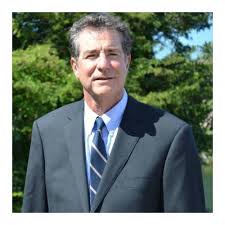Prognosis of Medically Treated Patients with Coronary Artery Disease With Profound ST-Segment Depression During Exercise Testing
Exercise Performance-Based Outcomes of Medically Treated Patients with Coronary Artery Disease and Profound ST Segment Depression
References
http://online.wsj.com/article/SB123146318996466585.html
Wall Street Journal Jan 2009
In 2006, for example, according to data provided by the American Heart Association, 1.3 million coronary angioplasty procedures were performed at an average cost of $48,399 each, or more than $60 billion; and 448,000 coronary bypass operations were performed at a cost of $99,743 each, or more than $44 billion. In other words, Americans spent more than $100 billion in 2006 for these two procedures alone.
Despite these costs, a randomized controlled trial published in April 2007 in The New England Journal of Medicine found that angioplasties and stents do not prolong life or even prevent heart attacks in stable patients (i.e., 95% of those who receive them). Coronary bypass surgery prolongs life in less than 3% of patients who receive it. So, Medicare and other insurers and individuals pay billions for surgical procedures like angioplasty and bypass surgery that are usually dangerous, invasive, expensive and largely ineffective. Yet they pay very little -- if any money at all -- for integrative medicine approaches that have been proven to reverse and prevent most chronic diseases that account for at least 75% of health-care costs. The INTERHEART study, published in September 2004 in The Lancet, followed 30,000 men and women on six continents and found that changing lifestyle could prevent at least 90% of all heart disease.
http://www.drmcdougall.com/misc/2007nl/apr/fav5.htm Angioplasty Fails Again and Again (8 out of 8 times)
Optimal Medical Therapy with or without PCI for Stable Coronary Disease by William Boden in the April 12, 2007 issue of the New England Journal of Medicine found after studying 2287 patients, “As an initial management strategy in patients with stable coronary artery disease, PCI (angioplasty) did not reduce the risk of death, myocardial infarction,
or other major cardiovascular events when added to optimal medical therapy.”1
In 2004, more than 1 million coronary stent procedures were performed in the United States, and recent registry data indicate that approximately 85% of all PCI procedures are undertaken electively in patients with stable coronary artery disease.
1) http://content.nejm.org/cgi/content/short/NEJMoa070829
Boden WE, et al. Optimal medical therapy with or without PCI for stable coronary disease. N Engl J Med. 2007 Apr 12;356(15):1503-16.
2) http://www.bmj.com/cgi/content/full/334/7596/0-a
Loder E. Curbing Medical Enthusiasm. BMJ 2007, April 7; 334: doi:10.1136/bmj.39175.409132.3A
3) http://content.nejm.org/cgi/content/abstract/NEJMoa066139
Hochman JS, Coronary intervention for persistent occlusion after myocardial infarction. N Engl J Med. 2006 Dec 7;355(23):2395-407.
4) http://content.nejm.org/cgi/content/extract/356/15/1572
Hochman JS, Steg PG. Does preventive PCI work? N Engl J Med. 2007 Apr 12;356(15):1572-4.
The study I am now writing about in this newsletter brings the total to 8 studies reported to date that show angioplasty fails to save lives—there are no others showing otherwise.
http://content.nejm.org/cgi/content/short/NEJMoa070829
Optimal Medical Therapy with or without PCI for Stable Coronary Disease William E. Boden, M.D., the COURAGE Trial Research Group
Background In patients with stable coronary artery disease, it remains unclear whether an initial management strategy of percutaneous coronary intervention (PCI) with intensive pharmacologic therapy and lifestyle intervention (optimal medical therapy) is superior to optimal medical therapy alone in reducing the risk of cardiovascular events.
Methods We conducted a randomized trial involving 2287 patients who had objective evidence of myocardial ischemia and significant coronary artery disease at 50 U.S. and Canadian centers. Between 1999 and 2004, we assigned 1149 patients to undergo PCI with optimal medical therapy (PCI group) and 1138 to receive optimal medical therapy alone (medical-therapy group). The primary outcome was death from any cause and nonfatal myocardial infarction during a follow-up period of 2.5 to 7.0 years (median, 4.6).
Results There were 211 primary events in the PCI group and 202 events in the medical-therapy group. The 4.6-year cumulative primary-event rates were 19.0% in the PCI group and 18.5% in the medical-therapy group (hazard ratio for the PCI group, 1.05; 95% confidence interval [CI], 0.87 to 1.27; P=0.62). There were no significant differences between the PCI group and the medical-therapy group in the composite of death, myocardial infarction, and stroke (20.0% vs. 19.5%; hazard ratio, 1.05; 95% CI, 0.87 to 1.27; P=0.62); hospitalization for acute coronary syndrome (12.4% vs. 11.8%; hazard ratio, 1.07; 95% CI, 0.84 to 1.37; P=0.56); or myocardial infarction (13.2% vs. 12.3%; hazard ratio, 1.13; 95% CI, 0.89 to 1.43; P=0.33).
Next Page 1 | 2 | 3 | 4 | 5 | 6 | 7 | 8
(Note: You can view every article as one long page if you sign up as an Advocate Member, or higher).





